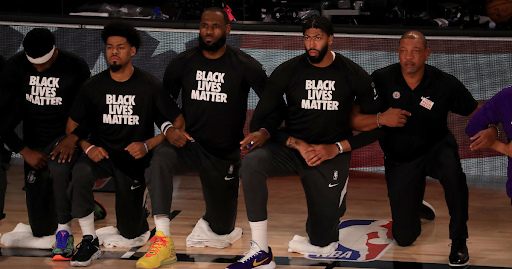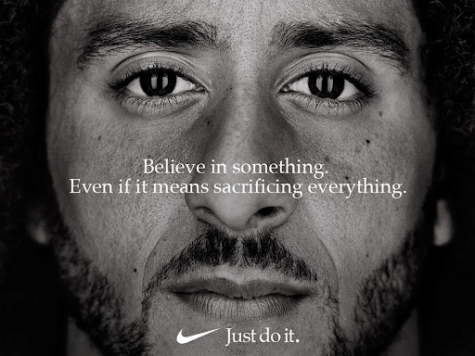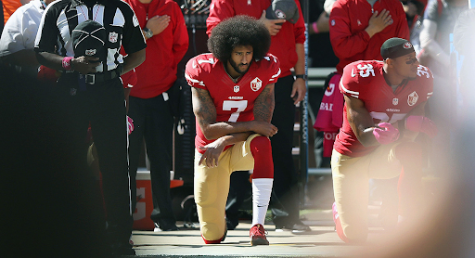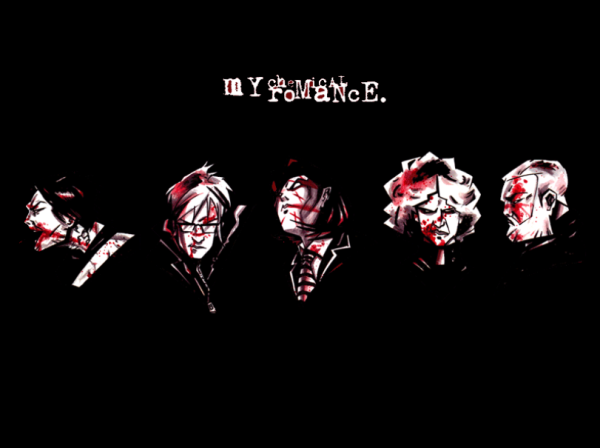“Dream Crazy:” Colin Kaepernick vs. Mainstream America

Image via Mike Ehrmann/Getty
“Believe in something. Even if it means sacrificing everything.” The instrumental music rises in intensity as Colin Kaepernick turns to face the camera in the award winning Nike ad “Dream Crazy.” Nothing could quite epitomize the debates, the turmoil, and the struggles that Kaepernick has been through like these simple words. From the moment he first entered the national consciousness, Kaepernick’s time in the spotlight has been controversial. However, in the wake of 2020, Kaepernick is a figure often returned to, cited as an example from both sides of the political divide. Why is America so drawn to his story?
Kaepernick’s actions throughout his career have been polarizing. His ideas are often radical: he has advocated for the abolition of the police and worn socks portraying police as pigs. At the time he began protesting, many people were not ready to hear him.

When Kaepernick began kneeling in protest of the way Black Americans were treated by police, the political climate in the United States was charged. Divisive rhetoric showed the widening the gap between people of opposing views as candidates campaigned for the upcoming presidential election. In addition, many were outraged that such a blatant agenda was being brought onto the sports field. Prior to Kaepernick, sports were seen as entertainment separate from politics. Kaepernick was perceived as ungrateful, a man who openly flouted American patriotism while simultaneously benefitting from the freedoms, such as free speech, established by the first Patriots and fought for by our military.
Yet there is another perception: Kaepernick, standing against the majority, standing for his morals despite the fact that he likely knew he would be punished for it. One could argue that he is in fact the quintessential American story: an underdog, fighting against a massive power, driven by his conscience.
Perhaps journalist Michael Rosenburg put it best: “Mainstream white America is going to reconsider Kaepernick at some point—the way it reconsidered Muhammad Ali years after he refused to go to Vietnam, the way it reconsidered Jackie Robinson and Jack Johnson.”
The nationwide discussions held after the murder of George Floyd brought the topics of police brutality, systemic racism, and the activism of Black Lives Matter into the spotlight, and political commentary from public figures became more normalized. Whether you agree or disagree with Kaepernick’s actions, and whether you think that the subsequent public reactions were justified or unjustified, what makes Kaepernick’s story so compelling is that he stood for something, and he stood alone.

Looking back, it’s easy to spot the Kaepernick effect. His protest spread across the NFL, with teams linking arms, raising fists, and kneeling during the national anthem in solidarity with the fight against police brutality. Later, it spread to other sports: in 2020 the New Orleans Pelicans and Utah Jazz knelt while wearing “Black Lives Matter” shirts, and at the 2021 Tokyo Olympics, multiple soccer teams knelt before kickoff. Nowadays, it is not uncommon to see athletes at all levels of a sport peacefully protesting before a game or during the anthem.
In part, we have Kaepernick to thank for the recognition of unresolved racial issues occurring in this country- while his actions are still being debated today, there is no doubt that he was one of the first faces of a movement. Progress is slow, difficult, and oftentimes outright infuriating, but as we look to the future and the changes we want to make, we should be reminded of the trailblazers who came before. Though they may have been scorned in their time, they are remembered as heroes today.
Watch the award winning “Dream Crazy” ad here.

Emmalina is currently a Senior at South Lakes High School and Co-Editor in Chief of the Sentinel. This is her 3rd year writing for the newspaper, and she...

















